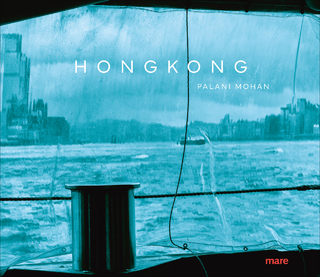
Islamic Frontiers of China
I.B. Tauris (Verlag)
978-1-84885-702-5 (ISBN)
There are over twenty million Muslims in China today. From the mountainous borders with Afghanistan to the tropical island of Hainan, the ethnicities and cultures of China's Muslims are as diverse as China herself. They come from at least ten different ethnic groups, including the Persianate Tajiks in the Pamir Mountains, Kirgiz eagle hunters in the west, and the Chinese speaking Hui living in Canton. In recent years the world's attention has been drawn to the clashes between Muslim Uighurs and Han Chinese in Xinjiang Province. But how does a Muslim minority in the People's Republic of China live today? After decades of communist rule, and now under the onslaught of commerce and consumerism, what pressures do the different communities and their heritages face? Wong How Man, a renowned Chinese explorer and Adel Awni Dajani, with his Muslim background, come together to explore the regions of the Asian borderlands where the traditions of Islam and China interact. Their collaboration has resulted in this lavishly illustrated book which gives us a glimpse of the rich diversity of life on the Islamic frontiers of China.
Wong How Man was honoured in 2002 by Time Magazine among their selection of 25 Asian Heroes as China's most accomplished living explorerA". He is Founder and President of the China Exploration and Research Society, a pre-eminent non-profit organization specializing in exploration, research, conservation and education in remote China. Prior to starting his own organization in 1986 in the U.S., Wong had led six major expeditions for the National Geographic. At the magazine, he was an explorer/writer/photographer and credited with the discovery of a new source of the Yangtze River. His writing for the National Geographic was nominated for the Overseas Press Club Award of America. In more recent years, he also defined the sources of the Mekong and the Yellow River. Wong has authored over a dozen books. Among these, 'From Manchuria to Tibet' (1998) won the prestigious Lowell Thomas Travel Journalism Gold Award. Adel Awni Dajani was educated at Eton College and London University, then at Middle Temple Inns of Court. Whilst still a student in 1974 he went on one of the first organised student trips to China and began for the first time a long term relationship with that country, at the same time becoming fascinated by the extent of China's Muslim heritage. Dajani and Wong in 1984 together undertook a programme of fieldwork and research to further their understanding of Islam and China. Since then the history of encounters between Islam and other cultures has captivated Dajani who now lives between Tripoli and Tunis.
Part One
Chapter 1: Ancient Trade Routes
Chapter 2: Islam Comes to China
Part Two
Chapter 3: Personal Encounters
Part Three
Chapter 4: Outlook on Islam in China in the 21st Century
Epilogue
| Erscheint lt. Verlag | 30.11.2010 |
|---|---|
| Zusatzinfo | Full colour throughout |
| Sprache | englisch |
| Maße | 220 x 300 mm |
| Gewicht | 1320 g |
| Themenwelt | Reisen ► Bildbände ► Asien |
| Reisen ► Reiseberichte | |
| Geisteswissenschaften ► Religion / Theologie ► Islam | |
| Sozialwissenschaften ► Soziologie ► Spezielle Soziologien | |
| ISBN-10 | 1-84885-702-0 / 1848857020 |
| ISBN-13 | 978-1-84885-702-5 / 9781848857025 |
| Zustand | Neuware |
| Haben Sie eine Frage zum Produkt? |
aus dem Bereich


